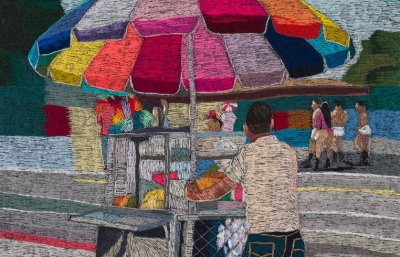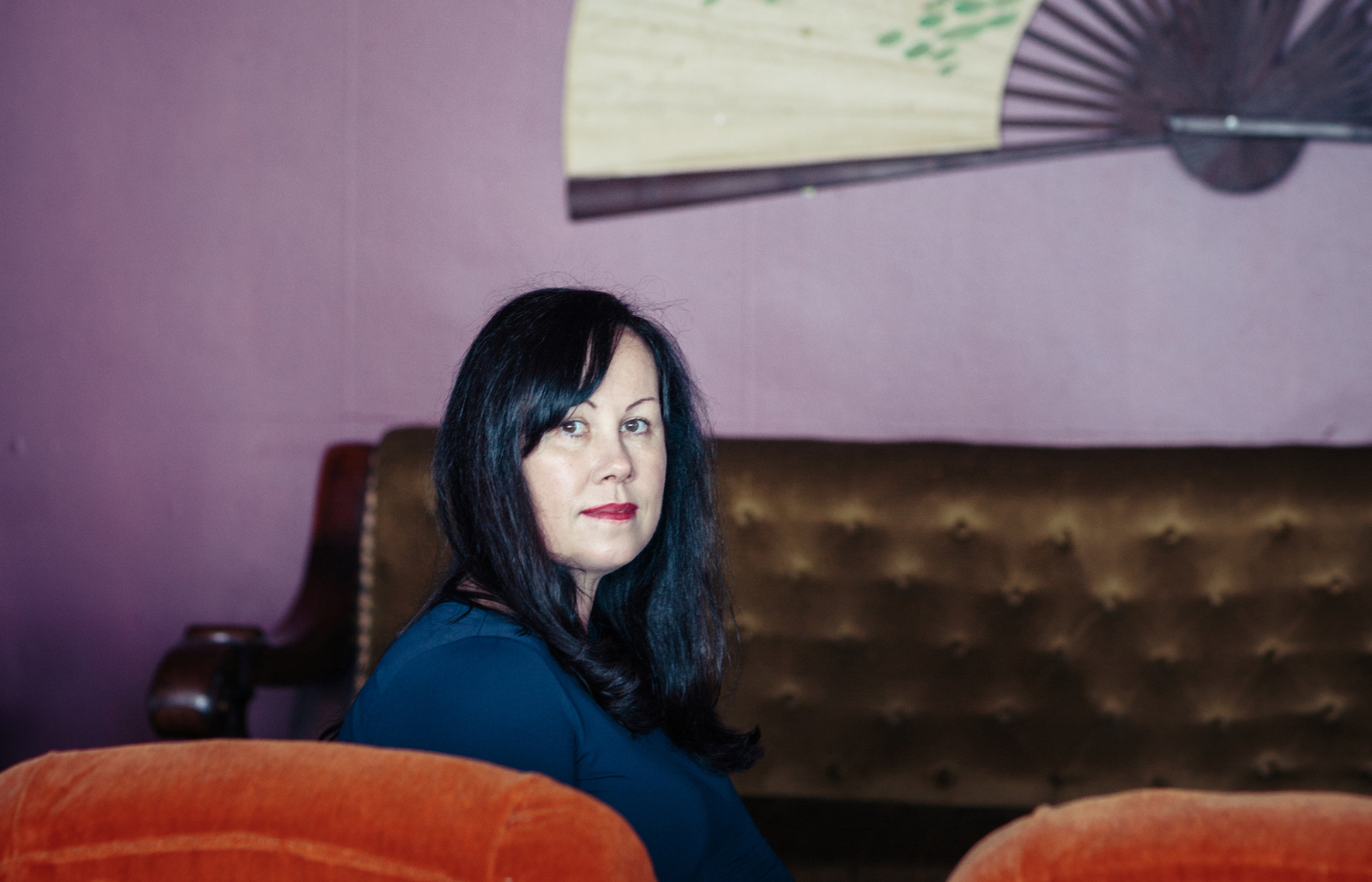
Genieve Figgis
Theater of the Obsessed
Interview by Kristin Farr // Portrait by Doreen Kilfeather
Genieve Figgis explores history and classical art through a spontaneously messy process of painting with globs and pours, a deliciously grotesque approach to the figure. Her paintings, like twisted memories of art history class, draw parallels between the problematic depictions of society from the past and today, reminding us that history repeats and our memory is blurry and slippery… goopy, even. She wrestles with her materials, relishing them thoroughly as she inhales the fresh air of the Irish coast and exhales her enthusiasm for paint.
Typically completed in one sitting, her process is theatrical like the stories she reflects. Black metal plays in the background while she sculpts her paint, directing new scenes, playing God, and revealing her characters and their behavior to her audience. These interpretations come through her, conveying a dialogue with the past that speaks to the redundant rise and fall of decency in the world. Emotion and expression is raw in these paintings, pure feeling pouring out with an occasional wink. Threads of grandiosity and ownership are woven in, and Figgis’s sly wit questions value and morality as portrayed throughout history. Her work begins with serious intent, but she acknowledges that humor inevitably pokes through. As artist Ad Reinhardt once proclaimed, “Art is too serious to be taken seriously.”
There are multiple ways to interpret these reimagined paintings, whether you see them as distorted interpretations of the past, or mirrors of today, revealing the underbelly of our thoughts and desires. Figgis studies the ways we represent our internal landscape visually, and though not all of her work references history, her storyline always portrays the complexity of human experience.
Kristin Farr: Is it fair to say you make art about art? Your interpretation of Fragonard’s The Swing grabbed me. How do you respond when asked what your work is about?
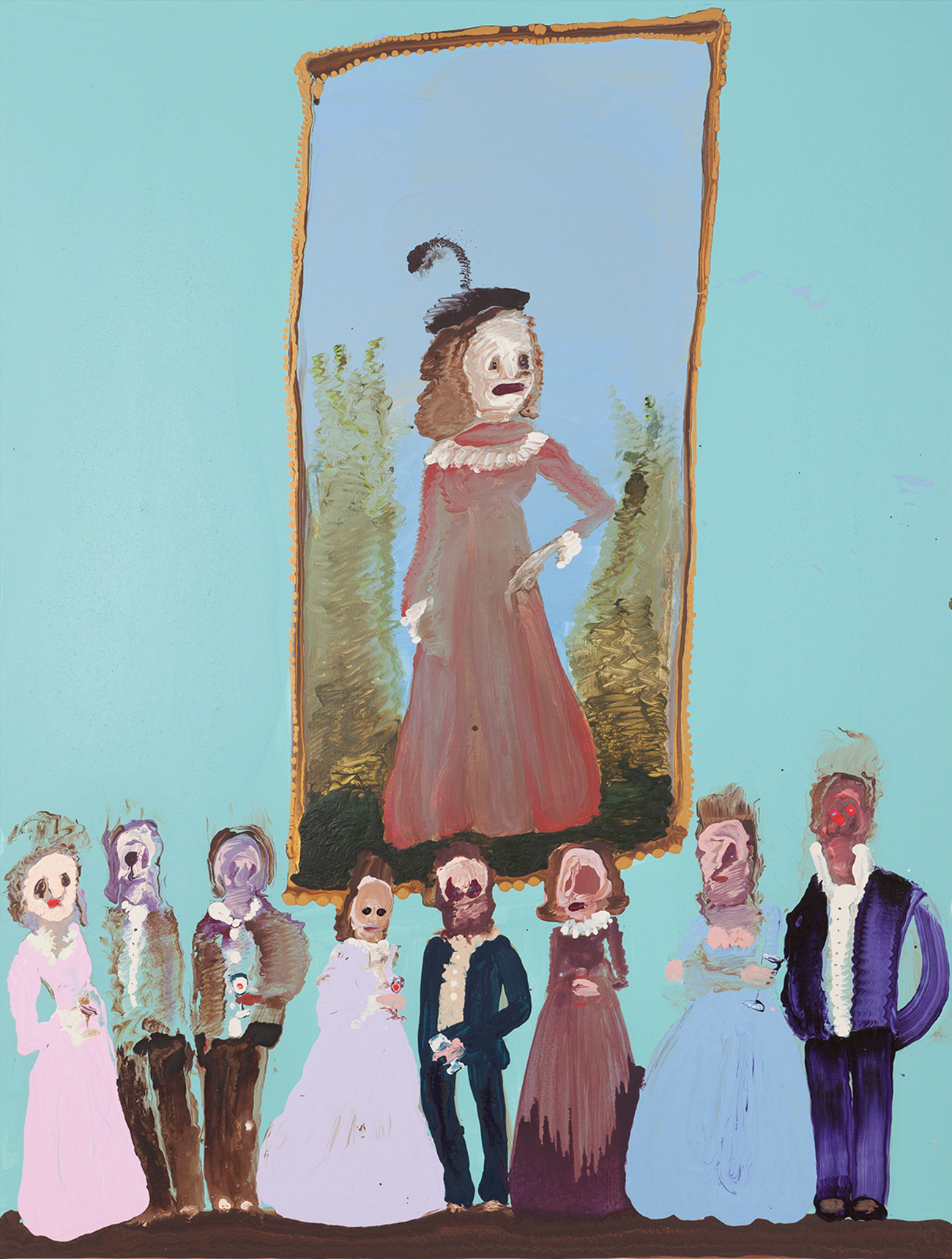
Genieve Figgis: My work is about history but I am very interested in the history of art and it is also a theme running through. I love Old Master paintings and I use my work to visit them. I will probably never own one, so I just like to make my own version.
What’s the last thing you saw that you wanted to have for yourself, something you wanted to reimagine in paint?
I recently saw a spectacular show in the National Gallery of Ireland entitled Vermeer and the Masters of Genre Painting. These paintings instantly take you back to the fifteenth century. They represent a time lost and seem like a good place to visit with paint.
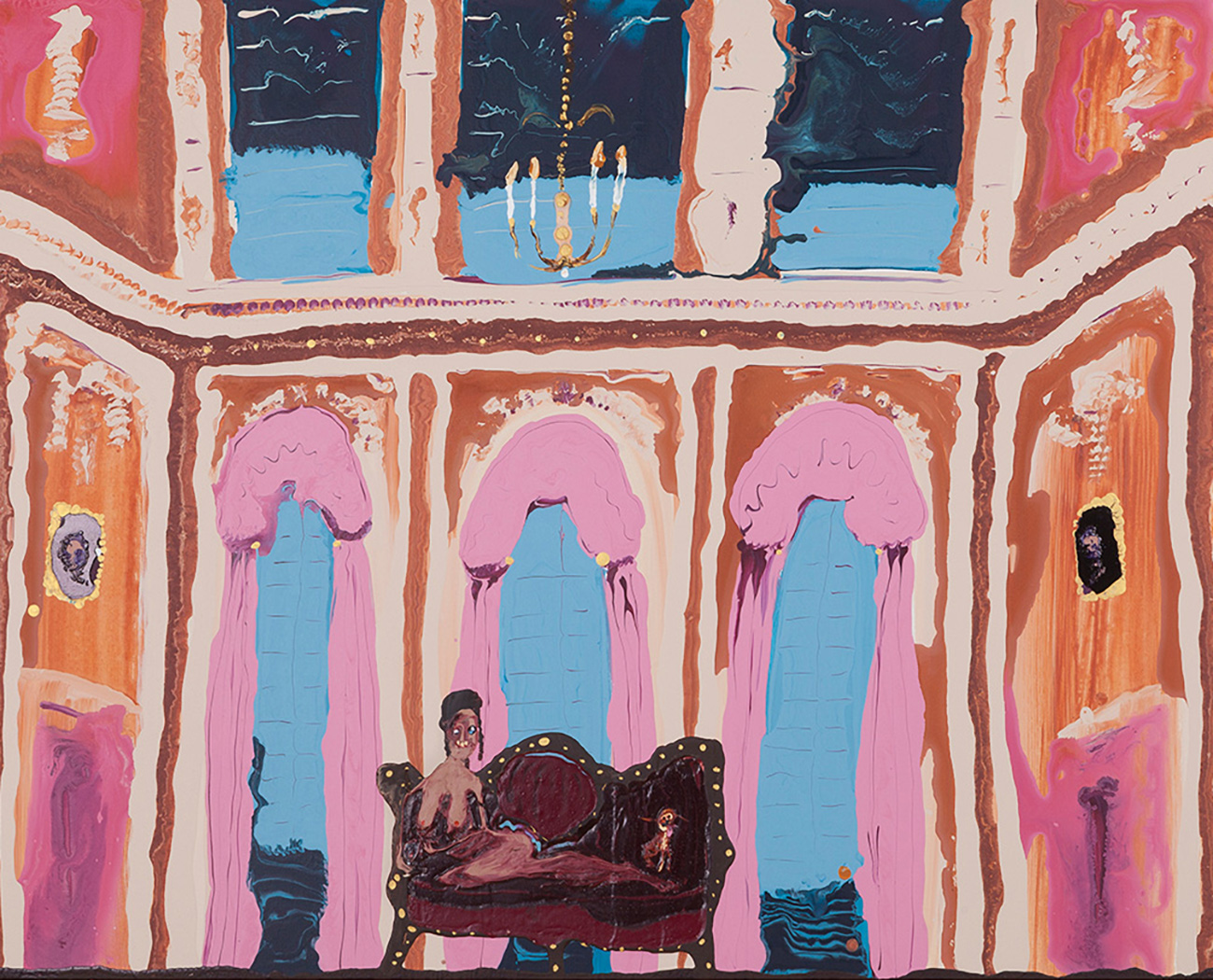
You also make art referencing different art forms, like your series inspired by Romeo and Juliet. What was your focus within that story?
Romeo and Juliet is about romance and death. I was thinking of the romantic element of the story, but I was always conscious of how the story ends when making the work. I wanted to make a version which had, for example, horses flying off to the underworld. Instead of focusing on gangs, I made a painting entitled Three Hunks From Verona. I wanted to present a different version of a story which had been well told.
I like how you’ve called your work covers of historical paintings, like a one-woman cover band. I know you love the painting Hellelil and Hildebrand, so have you done a cover of that one?
That is one of my favorite paintings. I have liked that painting for a long time. I made a version of it in 2014. It was part of my show with Almine Rech Gallery in London, and it was called Kissing by the Window.
Why do you love Hellelil and Hildebrand so much?
It's theatrical and romantic. It's heartbreakingly sad. The costumes are beautiful. True love never dies. You love who you love and no one should ever try to interfere with that.
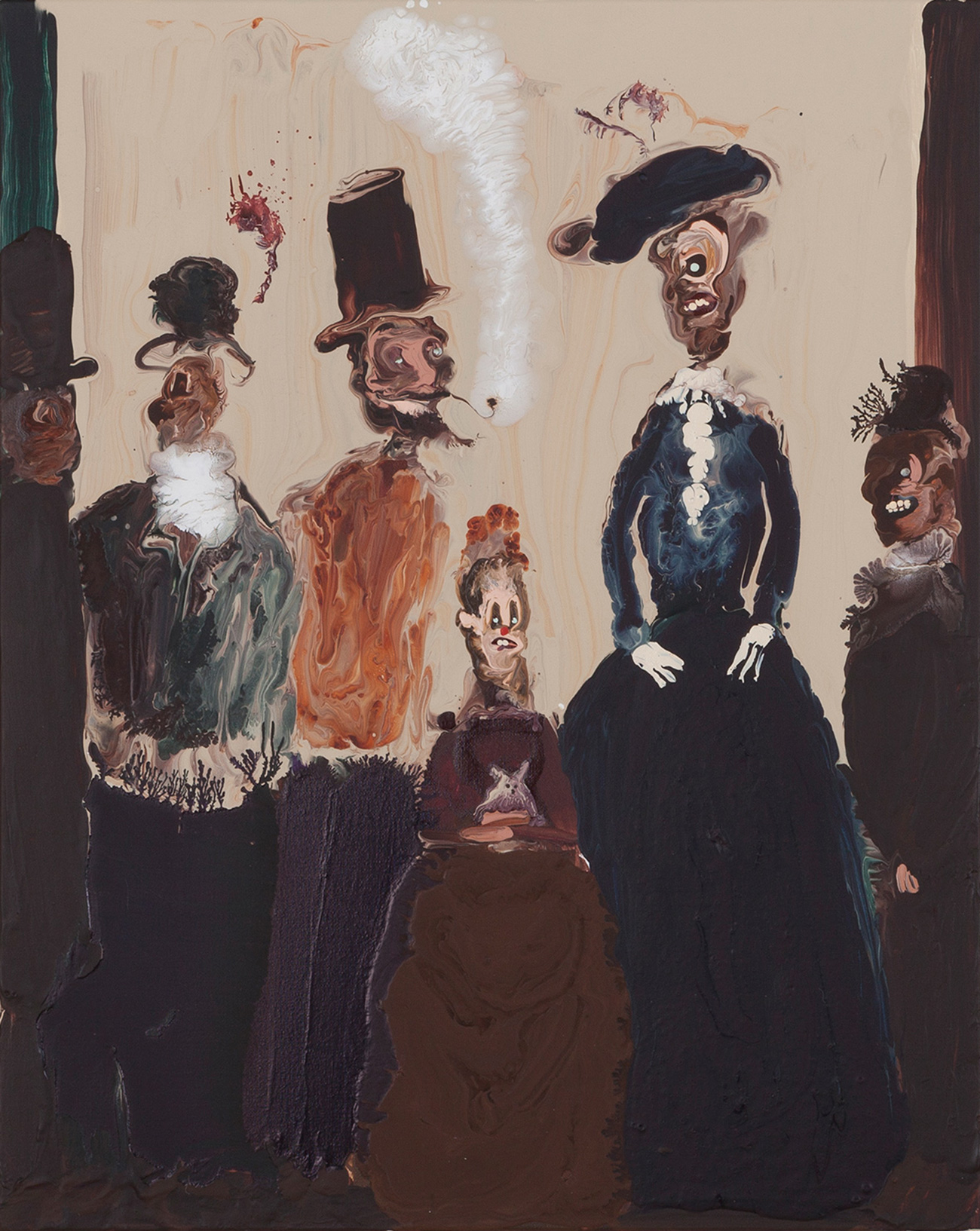
Are your covers of historical paintings just a starting point? In the end, your work isn't really about the originals, is it?
The covers are something that I want to experience. I will never own a Vermeer or a Goya. It must feel exactly like when people sing at Karaoke. In their own minds, they feel just as good and can just try something. A Lady Gaga or Axl Rose song, the audience might feel slightly different about. However, there is no harm in trying, and the experience is the most important part.
What parallels do you draw between contemporary life and the art of the past? Where do you notice similarities in attitude?
We are all the same as our predecessors, and "history repeats itself.”
Do you also paint purely from imagination?
Yes, I do. As soon as I start pouring the paint, ideas start to flow.
Do you pour paint and then use a brush?
I pour and I use brushes too, yes. It's a difficult messy process with no guarantees. I like that.
Your paint looks raw and sloshed around, but it still seems very deliberate. Would you say you have to be calculated to look spontaneous?
My process is very experimental and always has been. I use a lot of paint. I enjoy working this way.
Do you make sketches or keep a photo of the original paintings you’re responding to taped up in the studio as you work?
I never pre-sketch. I sometimes have an idea and start working. I do have the image hanging in my studio but I will still do my own thing anyway.
Do you enjoy playing God with your figures who you love and manipulate?
Yes, ha!
How do you describe the act of mushing paint around?
Messy but fun.
Do you have any notable studio rituals?
I drink coffee, I listen to music. I shuffle through books and magazines before I start mixing the paint.
What's your music taste for working?
I listen to classical, black metal, pop, jazz, and opera sometimes. All very theatrical and very moving at times. That's what gives me the energy I need.
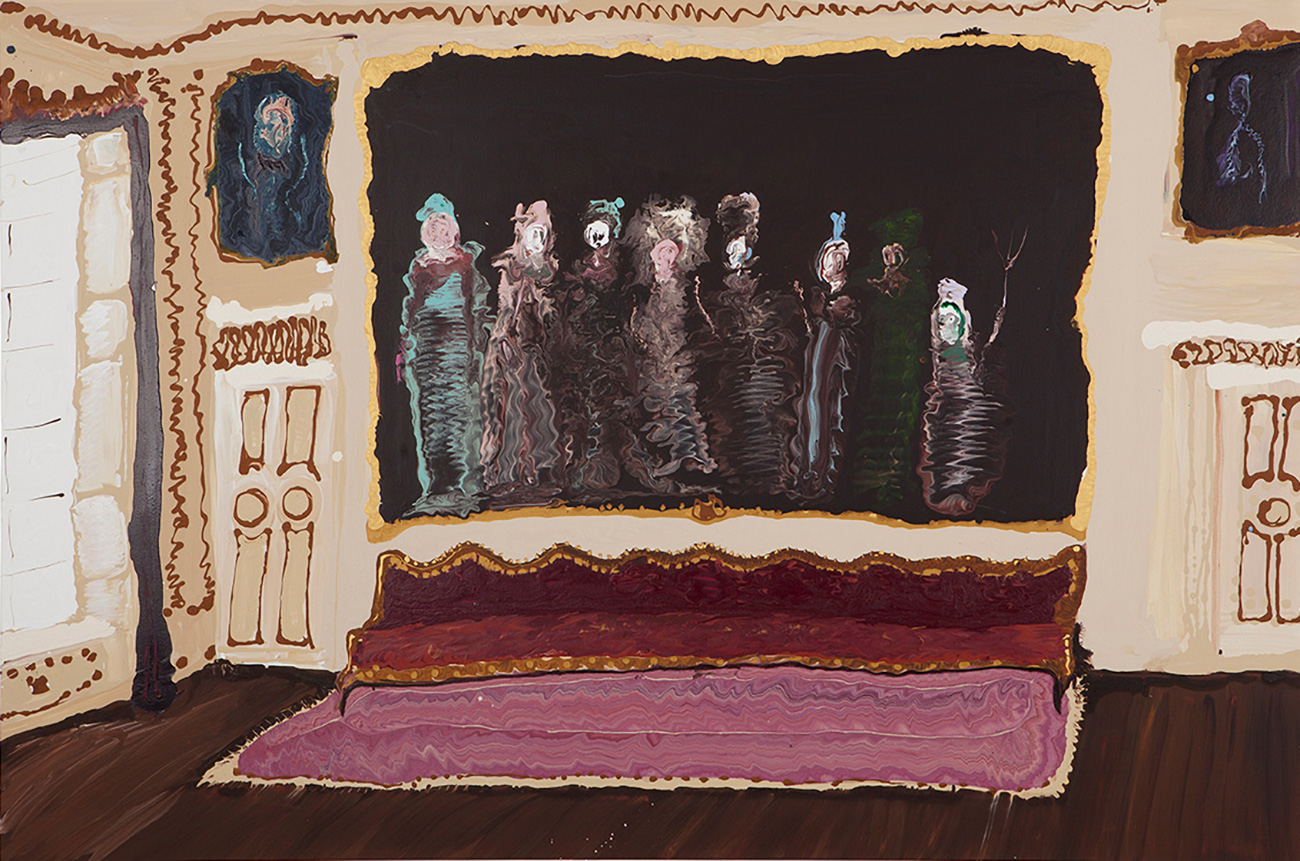
Tell me about your dogs and your coastal lifestyle.
I have four dogs and a cat who I like to hang out with. I love living by the coast and being close to the sea. It is an important part of my daily ritual. It makes me happy.
Manet’s Olympia is another painting you’ve referenced. The original one was so controversial and the issues it questions are still so relevant. Did you feel or discover anything unexpected from making that painting and showing it?
I found the image was still controversial but I put my own humorous twist on it.
Does it surprise you how people latch onto specific paintings of yours, like The Swing?
I think people will find things in art which are very personal to them and they will relate to. The Swing was important to me because it takes me back to my favorite part of French history, which is pre-revolutionary France.
Tell me about your film project for the Met Opera, and are you planning more? And who was Robert Devereaux?
I really enjoyed seeing the paintings come alive. Working on the project was a very enjoyable experience. Robert Devereaux was Queen Elizabeth’s hunky boy toy.
Who are some of your favorite postmodern painters?
My favorite paintings have always had figures in them. I love the work of Elizabeth Peyton, Cecily Brown and Dana Schutz.
What about historical painters?
Velazquez, Goya, Fragonard and Boucher. I love the theatrical element. They are all about performance.
Why do you like working figuratively? Are you a people watcher?
Oh yes, I love people and animals and nature. What we do here on earth is interesting. Humans are complex and extremely mysterious.
What are some experiences you had when you were younger, art-related or otherwise, that might've affected what you paint now?
I was always interested in art when I was child and I come from a very creative home. My father had a workshop at the side of our home. He made furniture, frames and clocks, spray painting them and even metal casting. He was very enthusiastic about everything he made and this was a big part of our family life.
Do you have any dream projects? Do you ever paint in an extra-large scale?
I think the larger works I do make are much more fun. I haven't shown many of them yet. They are much more challenging as I use a lot of paint. I would never want to make anything that's too predictable.
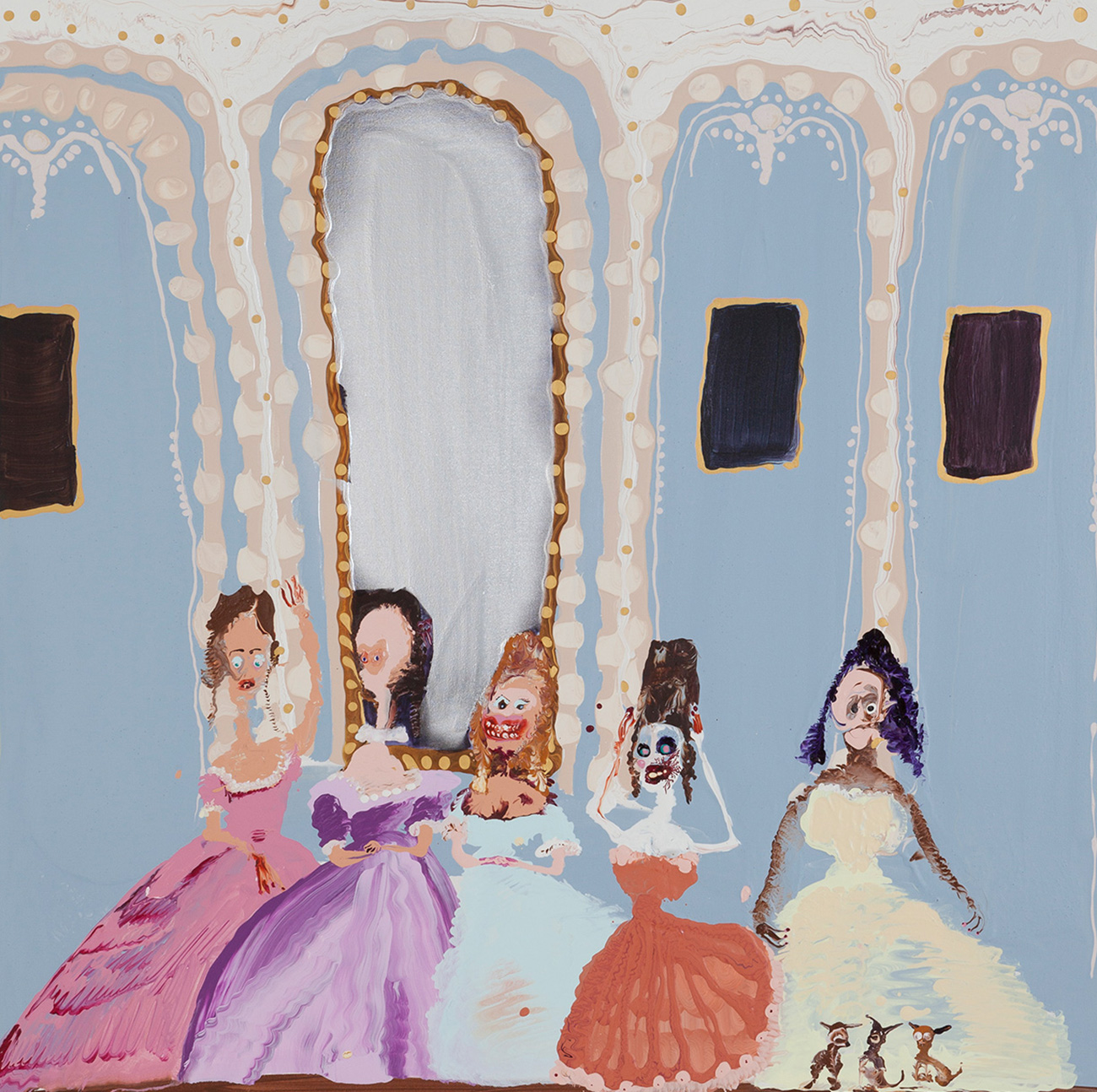
What are your favorite museums, and what’s your approach to doing research for your own work?
I love the Metropolitan Museum in New York, The Louvre in Paris and The National Gallery in London. I have a long list of places that I would still like to visit, and I hope I might get to do some of them soon. It is very inspirational and I take notes and read about the various themes that interest me. I am currently reading six different books. That will all filter down into the work.
Can you reveal anything about your show coming up in January?
I wouldn't want to say anything too early about the work as it is still evolving. I am very excited about it. I love making the work. The journey and the process are the most important part. I know that when I feel like this, the end result will be good.
What do you hope someone might think when they discover one of your paintings 100 years from now?
I hope that they will feel I have been experimental and that I truly loved what I did.
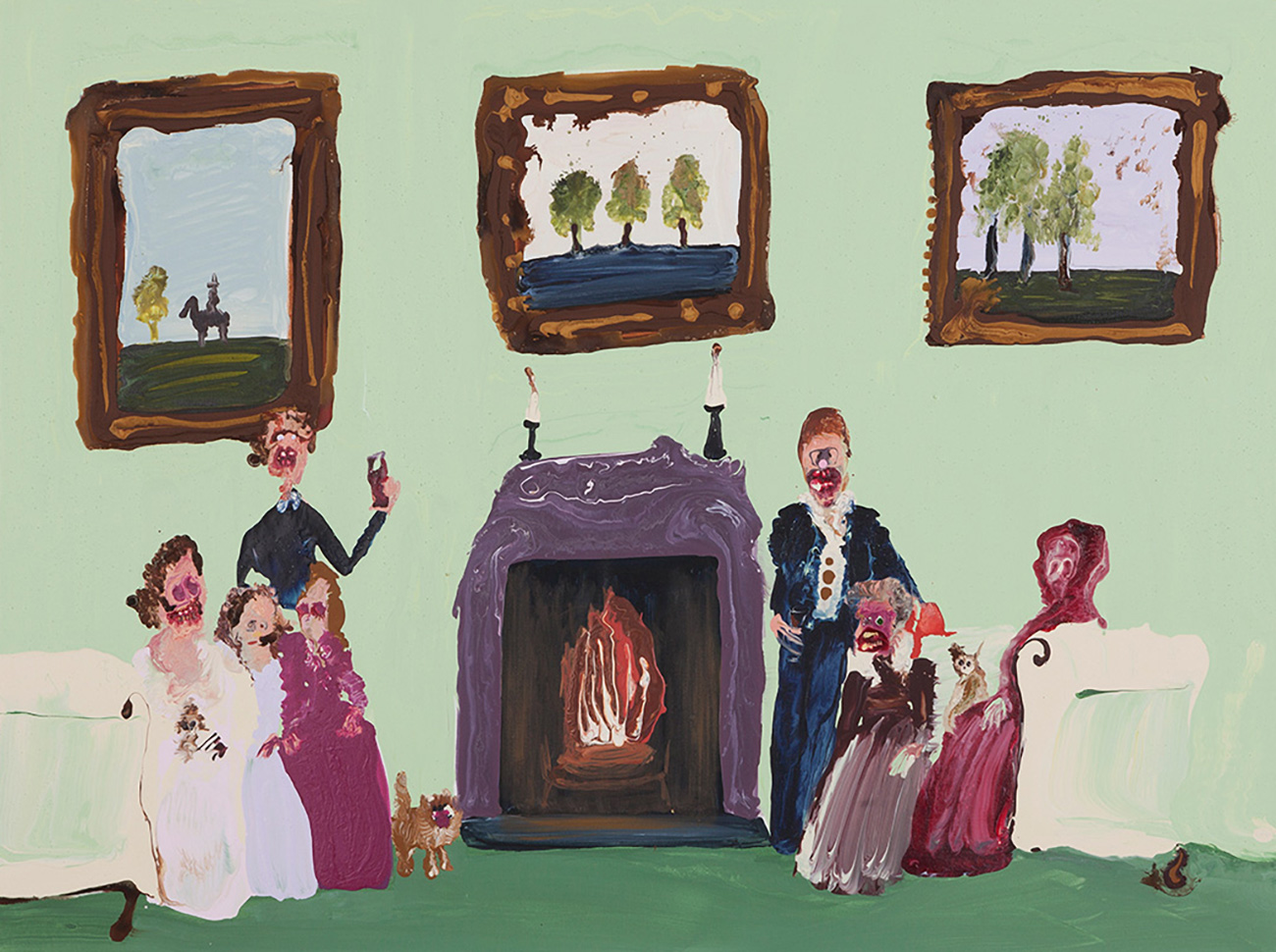
What are some favorite comments you've heard about your work?
People have been very generous and kind when they have commented online. I would be very happy to hear that they are much more interesting in person when they see them in actual reality.
Do you find humor in historical paintings?
I love looking at ideas of the past in Old Masters. They were made to tell you a story. Some of the portraits have the authority and theatricality, like Chancellor Séguier by Charles Le Brun at the Louvre museum in Paris. I enjoy looking at people from the past and how they portrayed themselves.
Why do you paint?
I just love paint and lots of it. It's very challenging but addictive.
I love the humor in your work and it always comes out in the eyes. Are your paintings equally serious and funny?
Eyes are the windows of the soul. I usually start off on a serious note but somehow the humour comes out in the end.
genievefiggis.com


